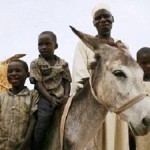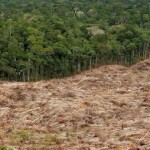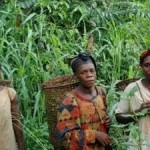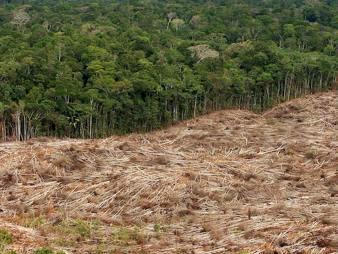Time and again, community members told Human Rights Watch that they were confused about the private investors’ intentions and long-term plans, unaware of the communities’ rights or the government’s obligations and companies’ responsibilities under national and international law. The companies have consistently failed to secure ‘free, prior, and informed consent’ from the local communities before they started operations on communal lands. The central and local governments have also failed to insist that the companies adhere to this established international standard.
“This is a very bad situation for us, bad for my people,” one Dodoth elder in Kaabong told Human Rights Watch. “No one consults us, and no one has told us what will happen next. Someone comes and occupies your land or takes your soil; it is something we haven’t really experienced before. People will die. People will die for this land and this gold. We cannot survive without them.”
Jan Mangal, a company with roots in India’s jewelry industry, arrived in Rupa, Moroto, complete with excavators and other mining equipment in mid-2012, with the support of high-level government officials, but without the knowledge of indigenous land owners or an exploration license. While the company has negotiated agreements with several individual members of the community for use of the land, many elders and most community members are confused about what has been agreed, and whether there is an agreement at all. This has prompted inter-communal animosity and accusations that certain elders have sold the community’s land.
DAO, the Ugandan subsidiary of a Saudi and Kuwaiti construction firm, failed to consult the community prior to cutting marble under its exploration license. While, after some time, it held several meetings to determine which families had households on the land it occupies and compensated individual families, tensions over land, employment, and water persist. The community’s right to respect for their communal ownership of the land does not appear to have been clearly considered.
The government urgently needs to create a land registration system that ensures security of tenure, particularly for communal land owners, and respects land rights of indigenous peoples. In the absence of such adequate protection, fears of land grabbing have proliferated. Uganda’s land laws recognize customary land ownership, but the government has not granted such certificates anywhere in the country.
Land is held communally in Karamoja and used for grazing livestock and growing crops, as well as for traditional purposes such as burials and spiritual shrines. Some groups migrate across the lands seasonally. There has been considerable governmental resistance to communal or collective land ownership involving large numbers of owners, as in Karamoja.
“We said [to the company’s employees], ‘This soil is ours, not yours,’” said a local artisanal miner from Lopedo, in the Kaabong district. “They said, ‘[President Yoweri] Museveni gave us this land…’ We said, ‘You are so powerful. The government gave you our way of survival.’”
Companies arriving to carry out exploration have promised communities benefits to mitigate the loss of land use and livelihood and other impact, including schools, hospitals, boreholes, jobs, scholarships, and money in exchange for their cooperation. But even as exploration or mining has continued, the communities have not seen the promised benefits. Nor was this based on any consensual agreement between the communities and the companies over the use of their land.
Governments have a duty, and companies have a responsibility, to consult and cooperate with indigenous peoples to obtain their ‘free and informed consent prior to the approval of any project affecting their lands or territories and other resources. This responsibility is based on indigenous peoples’ right to own, use, develop, and control their traditionally occupied lands and resources, which has been affirmed by the African Commission on Human and People’s Rights and the United Nations Declaration on the Rights of Indigenous Peoples.
There are ample concerns about the government’s willingness and commitment to protect the human rights of Karamoja’s indigenous groups, Human Rights Watch said. Uganda’s mining law requires negotiating a surface rights agreement with landowners before mining begins, and payments of royalties once revenues flow, but the law does not require any communication or consent during exploration work. And communities that cannot prove land ownership may not ultimately receive royalties or be able to protect their land.
The presence of the Ugandan People’s Defence Forces at exploration and mining operations has prompted significant confusion and fear, and is likely to impede constructive consultations with affected communities, Human Rights Watch said.
International donors, particularly the World Bank, have had a prominent role in supporting Uganda’s development of the mining sector, but so far, projects have excluded indigenous peoples’ rights and, therefore, failed to set a positive precedent that would have supported the rights of the people of Karamoja.
“Donor-supported mining projects have yet to successfully address indigenous peoples’ rights in Uganda,” Bekele said. “The key requirement that all ‘development’ projects, including minerals exploration, may only take place with the free, prior, and informed consent of the indigenous land owners needs to be at the core of all donor projects in Karamoja.”
Check the following link to read/download the Full Report:
http://www.hrw.org/reports/2014/02/03/how-can-we-survive-here-0
Source: HRW.














